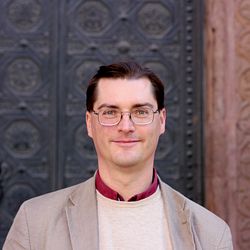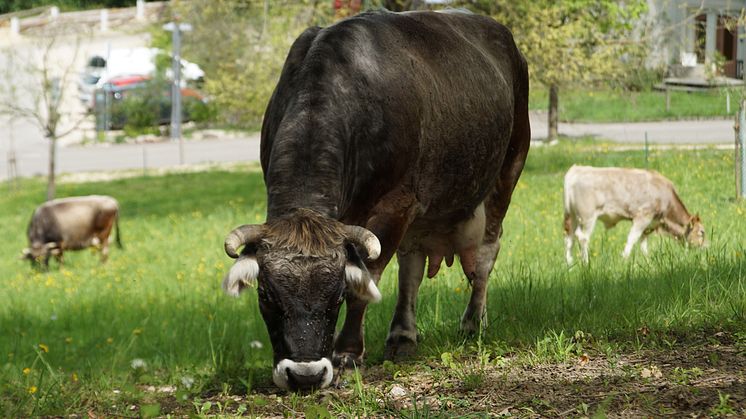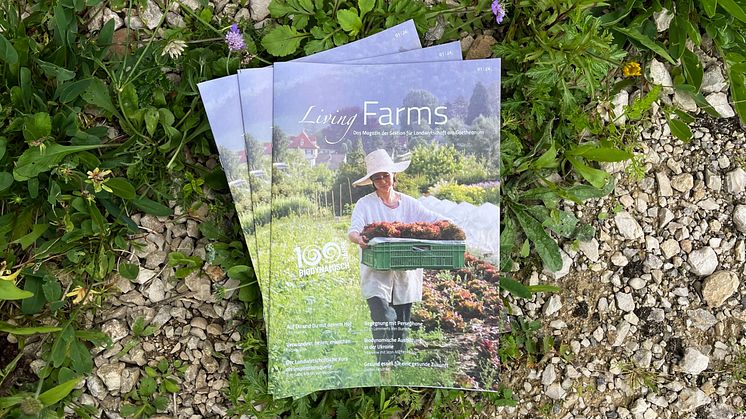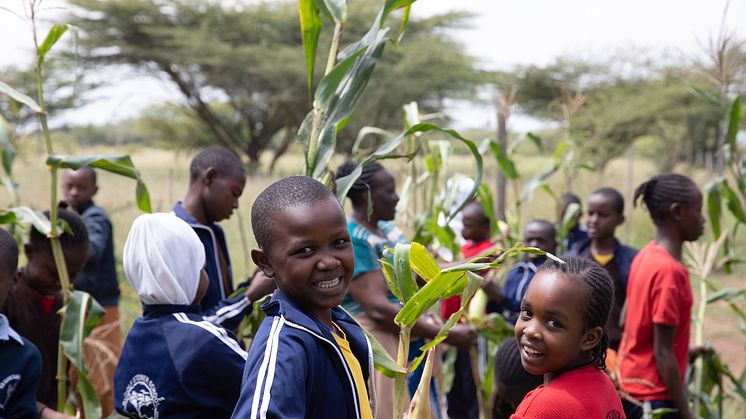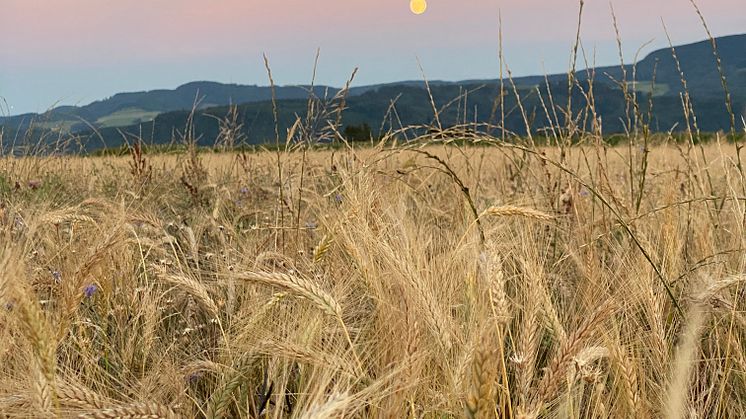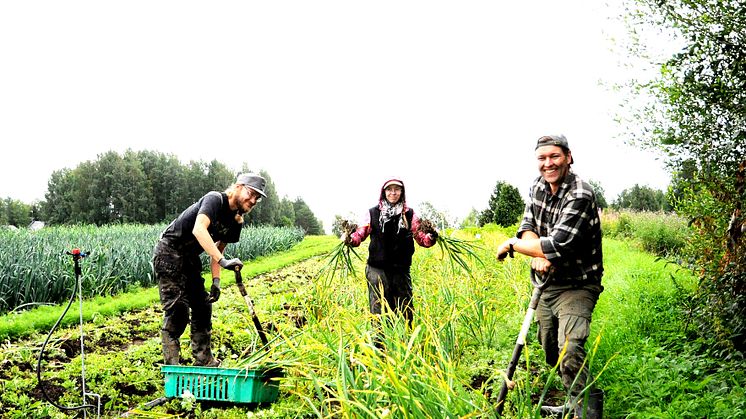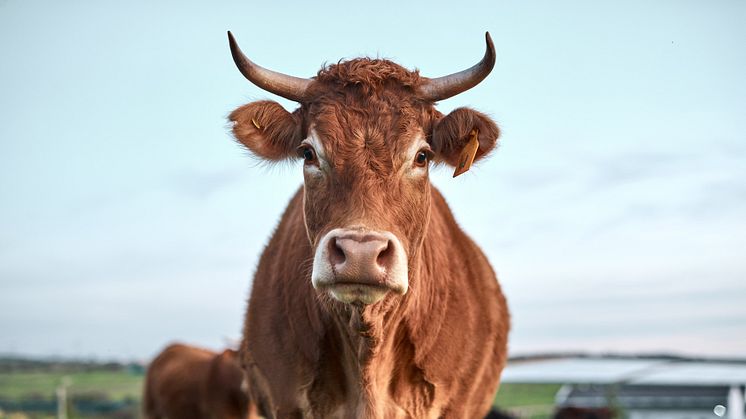
Press release -
Cows as carers of land and climate >>> Depending on how cows are kept they can have a positive effect on climate
Goetheanum, Dornach, Switzerland, 21 December 2023
Cows emit methane, a gas that affects climate. This effect does not have to be harmful. From the point of view of biodynamic agriculture, what cows eat, how they are kept and the facilitating of natural cycles can make them carers of land and climate.
“Whether cows do damage to the climate or whether they are carers of the land depends also on our views and actions,” writes Lukas Maschek, research assistant in the Section for Agriculture at the Goetheanum, in the magazine ‘Fonds Goetheanum’ on the topic of Cow and Climate, adding that “they can only become climate killers when people instrumentalize them as that.” A bold statement?
Ruminants produce methane as part of their digestive processes. Methane is one of the gases that affect the climate. If one looks at the entire impact cycle, however, a more differentiated picture arises. Biodynamics as a circular agriculture ensures that there is as little waste as possible. This means that harvesting and processing residues are turned into animal feed and cow dung is used as a fertiliser for the pastures. Fertiliser in this case means pure cow dung without urine. This kind of cow dung becomes a habitat for microorganisms and insects, which serve as food for amphibians, reptiles, bats and birds; by contributing to the formation of humus, cow dung promotes the diversity of living organisms in the soil.
In addition, humus-rich soil sequesters carbon dioxide and increases water retention. Both have a positive effect on the climate and on the implications of extreme weather. Grazing and mowing also stimulate root growth: grass grows fine and deep roots that also absorb carbon dioxide from the environment.
If animals are kept in accordance with soil capacity, the methane emitted becomes part of a positive spiral, because over the years methane is converted to carbon dioxide, then absorbed by healthy soils and plants and so soil fertility is maintained and supported.
(2042 characters, 319 words/SJ; English by Margot M. Saar)
Contact person Anna Storchenegger
Related links
Topics
Categories
The Goetheanum is the headquarters for the School of Spiritual Science and the General Anthroposophical Society. The School of Spiritual Science with its eleven sections is active worldwide in research, development, teaching, and the practical implementation of its research findings and is supported by the Anthroposophical Society.

